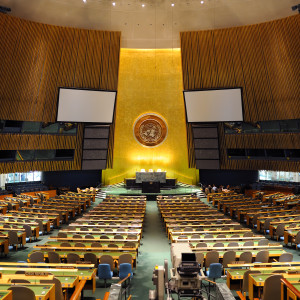Next month, President Obama is scheduled to attend a climate summit hosted by United Nations Secretary-General Ban Ki-moon to “galvanize and catalyze climate action.” Undoubtedly, Obama will be touting recent successes in the policy arena of climate change and urging world leaders to follow our lead.
Well, perhaps successes ought to be in quotes.
In actuality, the “successes” have only come in the form of proposed regulations from the Environmental Protection Agency (which were basically commanded by the White House) and from other Executive Orders. In other words, President Obama is pretty much acting as a one man wrecking crew when it comes to breaking the impasse on actions geared towards mitigating climate change by restricting greenhouse gas emissions.
Which begs the question, is this really what Americans want?
What’s to be gained by “taking the lead” on climate change, anyway?
It turns out to be very little. In fact, it may actually be detrimental.
The U.S. is not at particularly large risk from climate change. The Obama Administration’s Interagency Working Group tasked with establishing the social cost of carbon (SCC)—a loosely constrained and readily gamed estimate of how much future damage accrues from today’s carbon dioxide emissions—determined that the SCC for the U.S. was only a few dollars per emitted ton of CO2. And that number was calculated using models that, as shown by a growing body of scientific research, produce too much warming and too little agricultural benefit from increasing atmospheric carbon dioxide levels. Accounting for these inaccuracies drops the “social cost of carbon” in the U.S. close to zero (perhaps even becoming negative, that is, carbon dioxide emissions may actually provide a net benefit to the economy).
But such information is carefully concealed in Obama Administration reports, such as the one issued recently by the Council of Economic Advisors that predicts escalating costs the longer we delay serious climate change mitigation efforts. Instead of focusing on domestic costs of climate change, the report is built around an estimation of the global cost for carbon dioxide emissions—which, by the Administration’s numbers—is some 4 to 14 times greater on a per ton of emitted CO2 basis than those projected for the U.S.
Why should the President’s rush to restrict U.S. carbon dioxide emissions, which even his own officials say raises concerns about domestic energy costs and grid reliability, be justified upon supposed benefits which will largely accrue to foreign nations?
The Council of Economic Advisors report clarifies:
Climate change is a global problem, and it will require strong international leadership to secure cooperation among both developed and developing countries to solve it. America must help forge a truly global solution to this global challenge by galvanizing international action to significantly reduce emissions.
This explains why Obama is headed to New York.
But he must know that all he’ll be able to accomplish, even in the best case, will simply be lip service to his urgings.
First, where “taking the lead” on climate change has been tried in developed countries, politicians responsible for it often find themselves seeking other employment. When the Democrat-controlled U.S. House of Representative tried to take the lead and passed cap-and-trade legislation during the summer of 2009, its make-up turned over in the succeeding 2010 election. In Australia, since 2009, three political leaders, including two Prime Ministers were ousted over their support of schemes to reduce carbon dioxide emissions, the latest being Julia Gillard, who just this past June was voted out over her carbon tax (the Australian Parliament repealed the carbon tax in July.)
Second, current-generation renewable technologies are insufficient to meet the energy needs at the pace that developing countries (like China and India) would like to develop. Considering that opinion polls show that “climate change” ranks low among priorities of the U.S. populous, imagine where it must rank in countries with large populations with little to no access to electricity.
So even if the President sees heads nodding along when he is speaking at the climate summit, it is unlikely that anything concrete—with lasting and demonstrable effects on the climate—will (or can) result.
So where does that leave us?
Leading on an issue which increasingly science says is overblown, one with few willing and able followers, and one that will produce few tangible results—results that, as far as the U.S. economy is concerned, may even prove negative.
Thanks, but no thanks, Mr. President.

